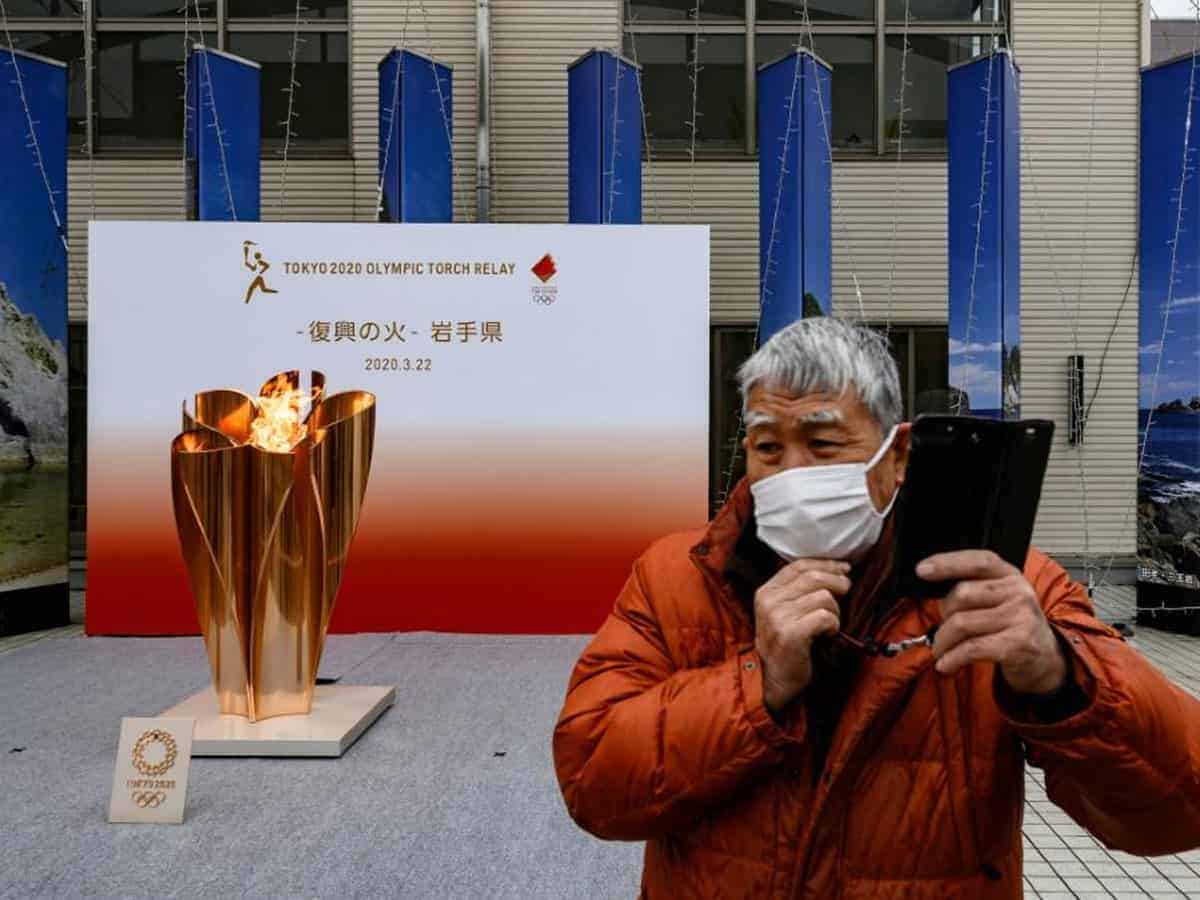Tokyo: Canada pulled out of the Tokyo Olympics over coronavirus fears as Japan’s prime minister Monday admitted a delay may be “inevitable” and the International Olympic Committee said a decision should come within weeks.
Australia also told its athletes to prepare for a Tokyo Olympics in 2021 as expectations grew that the Games — scheduled to start on July 24 — would be postponed as the virus crisis convulses the globe.
Japanese and Olympic officials had stuck resolutely to the line that the Summer Games will go ahead on time, but criticism from athletes and sports bodies has swelled to a crescendo in recent days.
Prime Minister Shinzo Abe told parliament that Japan was still committed to a “complete” Games, but added: “If that becomes difficult, in light of considering athletes first, it may become inevitable that we make a decision to postpone.”
It was the second major concession in a matter of hours after the IOC said “the scenario of postponement” was one of the options under consideration, with a final decision due within four weeks.
“Human lives take precedence over everything, including the staging of the Games,” IOC president Thomas Bach wrote in an open letter to athletes after emergency talks.
“Cancellation would not solve any problem and would help nobody,” Bach added.
“Therefore it is not on our agenda.”
‘Not solely about athlete health’
Athletes and sports bodies have become increasingly vocal after restrictions imposed because of COVID-19 trashed competition schedules and often made training impossible — and risky.
Canada highlighted the dangers to the broader community as they became the first team to withdraw from the Olympics and Paralympics, urging a year’s postponement.
“This is not solely about athlete health — it is about public health,” the Canadian Olympic Committee said.
“With COVID-19 and the associated risks, it is not safe for our athletes, and the health and safety of their families and the broader Canadian community for athletes to continue training towards these Games.”
Canada’s pull-out came despite the IOC promising to hold “detailed discussions” on the “worldwide health situation and its impact on the Olympic Games, including the scenario of postponement”, with a decision expected “within the next four weeks”.
Even this timetable was criticised, with Britain’s world 200m champion Dina Asher-Smith calling it “irresponsible”.
“So wait… does this mean that athletes face up to another FOUR weeks of finding ways to fit in training — whilst potentially putting ourselves, coaches, support staff and loved ones at risk just to find out they were going to be postponed anyway,” she tweeted.
“So irresponsible,” added Asher-Smith.
“I was really hoping to hear an announcement that they’d postponed it to 2021 this week.”
Crowds flock for flame
The IOC is responsible for making any final decision on the Games, and has come under increasing pressure as the coronavirus emergency grows, with more than 14,400 deaths worldwide, according to an AFP tally.
It warned that the logistics of postponing the Games were extremely complicated, with venues potentially unavailable, millions of hotel nights already booked and a packed international sports calendar.
However, Australian Olympic officials said “it’s clear” that the Tokyo Games can’t go ahead as scheduled and told its athletes to prepare for a year’s postponement.
“Our athletes have been magnificent in their positive attitude to training and preparing, but the stress and uncertainty has been extremely challenging for them,” said Australian chef de mission Ian Chesterman.
US track legend Carl Lewis had earlier became just the latest prominent call for a delay, following similar demands from the American, French and Spanish athletics associations.
The virus has already had an impact on the Games, with qualifiers cancelled and events to celebrate the Olympic torch arrival and relay scaled back.
Despite the measures, more than 50,000 people flocked to a cauldron displaying the flame in northeastern Japan, raising fears about whether the relay can be held safely.
Some waited in a 500-metre (yard) queue for several hours, Japanese media said.
“I queued for three hours but watching the Olympic flame was greatly encouraging,” a 70-year-old woman told public broadcaster NHK.

